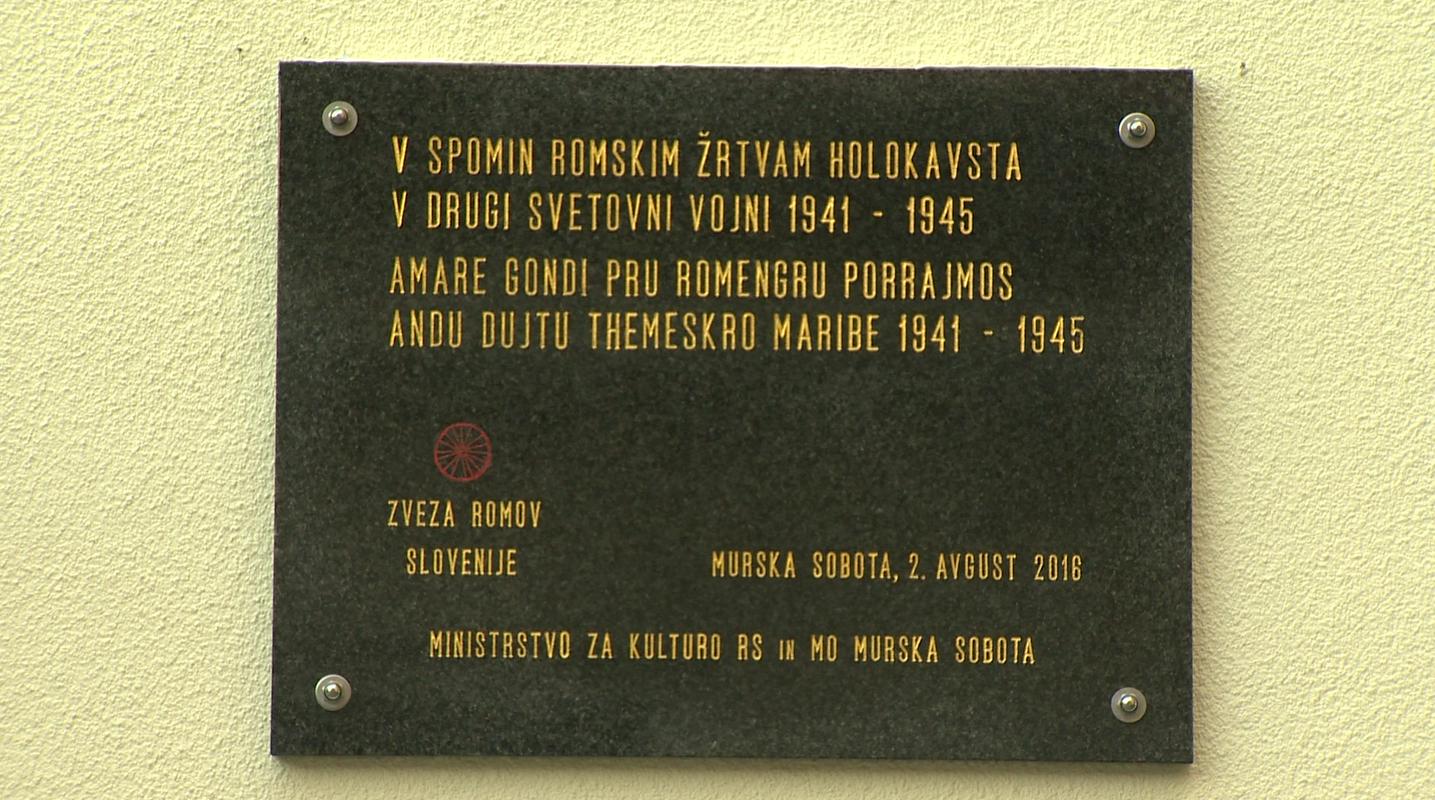72 years ago, in 1944, the so-called "Gypsy camp - Zigeunerlager"was abolished in the Auschwitz-Birkenau concentration camp. In a single night, on the eve of the 2nd August 1944, in that death camp almost 3,000 Roma and Sinti were killed; the event is now known as one of the most mass killing of Roma and Sinti.
In a number of European countries the 2nd August is marked as International Genocide of the Roma Remembrance Day, while the European Parliament only last April proposed to make it an international remembrance day.
Some VIP guests attended the event, and the plaque was unveiled by the State Secretary at the Ministry of Culture Damjana Pečnik, the mayor of Murska Sobota Aleksander Jevšek, and the initiator of the unveiling of the plaque, the president of the Slovenian Roma Association Jožek Horvat Muc.
"We are thus honouring not only the memory of the Roma genocide victims, but reminding that such things should never happen again," Jožek Horvat Muc said.
The State Secretary at the Ministry of Culture Damjana Pečnik said for TV Slovenija that by unveiling the memorial plaque Slovenia made a large step towards acknowledging the extensiveness of that tragic event in our common history.
The number of Roma victims killed in Europe during the Nazi regime is still unknown, but it is estimated to be between 250 and even 500 thousand Roma and Sinti from Europe. According to recent estimations the number could be even three times bigger.
In Slovenia International Holocaust Remembrance Day is celebrated on 27th January, as in 1945 the Red Army on that day liberated the Auschwitz concentration camp.
Today Roma represent the largest ethnic minority in Europe without a state of their own. Yet they still have their language, their culture, their flag, and their anthem. Yesterday’s ceremony in Murska Sobota concluded with the thought that "the present Roma generation must commit to pass their knowledge to the young, in order to keep the memory of the history of their ancestors alive”.
Sandi Horvat, TV Slovenija
Translated by G. K.


































































